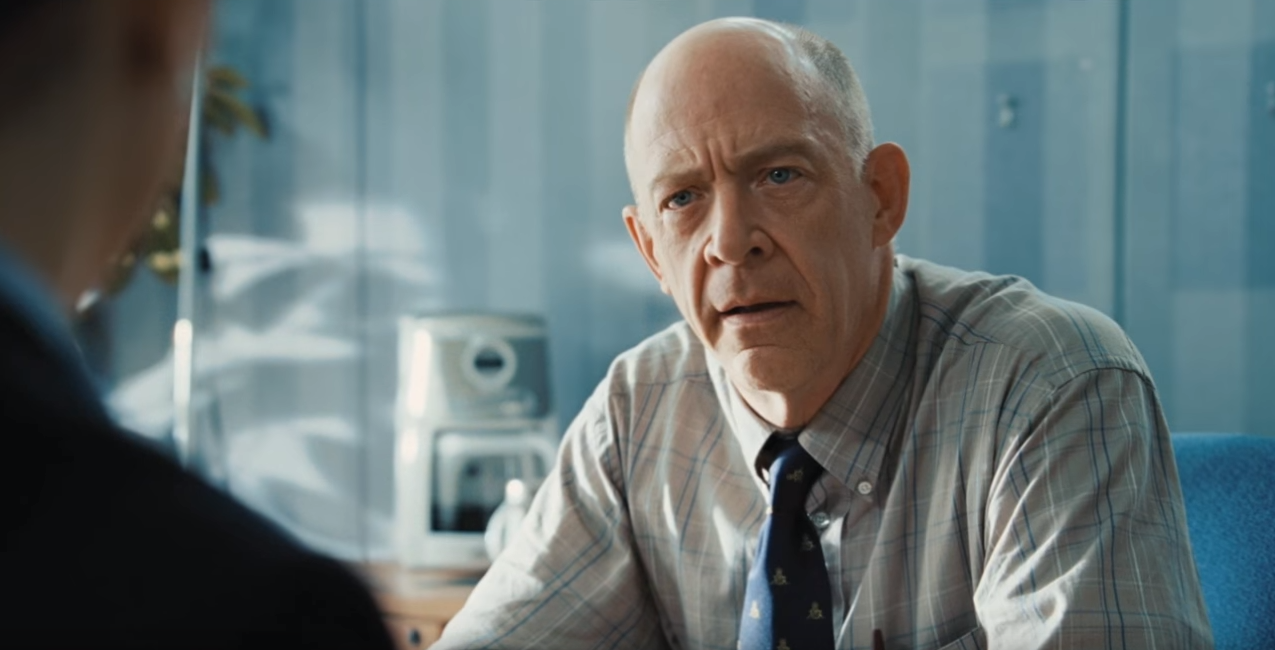This might be the most important 31 minute video you ever watch.

“People are strange: They are constantly angered by trivial things, but on a major matter like totally wasting their lives, they hardly seem to notice.” – Charles Bukowski
Business/busyness
Our time is worth something. Too often, though, we’re guilty of spending it foolishly or out of habit, or without intention… despite our lousy track record, though, it is possible to spend it wisely, just as we try to spend or invest anything valuable.
We wouldn’t buy medicine that we knew didn’t work, or invest in ads that never ran. It seems, though, that time doesn’t have to meet the same bar.
If you had a factory job, it wasn’t your job to worry about productivity. Somebody else was in charge. You did what you were told, all day, every day.
Now, more than ever, you’re likely to be running a team, managing a project or deciding on your own agenda as a free agent. Time is just about all you’ve got to spend.
And yet, we hardly talk about productivity.
Productivity is the amount of useful output created for every hour of work we do.
You can measure that output in money if you want to (it makes the math easier) but in fact, it’s everything from lives changed to knowledge shared. What matters is the answer to a simple question: did I spend my day producing enough benefit for all the time invested?
A teacher has a class for 160 days—an hour a day … How to spend that time, how to spend today, how to spend the next five minutes? What’s the most productive choice?
Henry Ford and the other productivity pioneers of the industrial revolution understood this to their bones. He designed the Model T to be efficient to build. As a result, each of his workers produced far more value per day than they could working at a competitor down the street on a car that wasn’t as thoughtfully engineered.
Since his workers were more productive, he could charge less for the car. Since they were more productive, he could pay them more and thus get better workers. And since they were more productive, he could invest in advertising and brand building. The end result is that the car industry went from 2,300 companies (!) to a dozen or so.
It’s worth pausing there for a second. The competitors didn’t have workers who tried less, or who took more breaks or who were weaker, less skilled or lazy. The other companies lost because Ford focused on productivity in a way that they didn’t.
The internet has opened the door for more people to organize and plan their day than ever before. And we’re bad at it.
Because we associate busyness with business with productivity.
Here are some useful ways to think about it:
1. The best way to improve productivity is to measure it. That means identifying the inputs (how much is your time worth? Is there anyone beside you who is working for free, trading favors, burning all the candles?) and identifying the outputs (what’s the worthy final output of all your effort?)
Hint: likes and friends are not an output. Social media might offer metrics that tell you if you’re moving toward what you hope to produce, but don’t confuse the map with the territory. As soon as you try to make a temporary metric go up at the expense of the real goal, you’re on your way to mere busyness.
2. Once you know what you seek to produce (not an easy task), add up all the time you spent to create it. That’s your current productivity. So, for example, if you’re a musician and you have to work 60 hours on the side to organize, prepare for and run a gig that makes you $600 in revenue, your productivity is $10 of value created per hour. Given that your time is finite, the objective is to compare time spent on that project with time spent on an alternative one. If you need 120 hours to write, mix and launch a track on SoundCloud that earns you $3 in royalties, it’s pretty clear which path created more value (if you’re using money as a metric). Of course, once you decide that being popular on SoundCloud makes those tickets easier to sell, it gets complicated again…
3. Get focused on the challenges and benefits of connection. Imagine two buildings under construction. Both have 25 well-trained, well-paid, hard-working construction workers. One building, though, was built in half the time of the other. What happened? It turns out that construction almost always slows down because people are waiting. Waiting for the waterproofing to get done (while they wait for the specialist) or waiting for parts or waiting for another part of the project. The internet is the home of the connection economy, which means that this challenge is multiplied by 100. What are you waiting for? When you’re waiting, what are you doing to create value?
4. Unlike factories (which are very special cases) our productivity varies wildly. It depends on the project, on the connections, on where we are in the process. If you’re working the same number of hours every day and getting very different amounts of output each day, it is definitely worth figuring out why. What happens to your output if you quit when you’re done, not at 6 pm? What happens if you take on more of the high-output projects and choose to walk away from the low output ones?
5. And finally, embrace the fact that trained people are more productive than untrained ones. That skill matters. That leaning into what you don’t know makes you more productive… that hiring someone who knows what you don’t know makes you more productive as well.
Busy is not your job. Busy doesn’t get you what you seek. Busy isn’t the point. Value creation is.
You only get today once. Your team does too. How will you spend it?

“It’s just literally a normal car in space — I kind of like the absurdity of that,” Musk said. “It’s kind of silly and fun, but I think that silly, fun things are important … I think the imagery of it is something that’s going to get people excited around the world, and it’s still tripping me out. I’m tripping balls here.”

“The feeling of being hurried is not usually the result of living a full life and having no time. It is on the contrary born of a vague fear that we are wasting our life. When we do not do the one thing we ought to do, we have no time for anything else.”
–Eric Hoffer, Reflections on the Human Condition
Hiding from the mission
We do this in two ways:
The first is refusing to be clear and precise about what the mission is. Avoiding specifics about what we hope to accomplish and for whom. Being vague about success and (thus about failure).
After all, if no one knows exactly what the mission is, it’s hard feel like a failure if it doesn’t succeed.
The second is even more insidious. We degrade the urgency of the mission. We become diffuse. We get distracted. Anything to avoid planting a stake and saying, “I made this.”
It’s possible to spend 7 hours and 52 minutes out of an eight-hour day in doing nothing but hiding from the mission. And it’s exhausting.
–Seth Godin
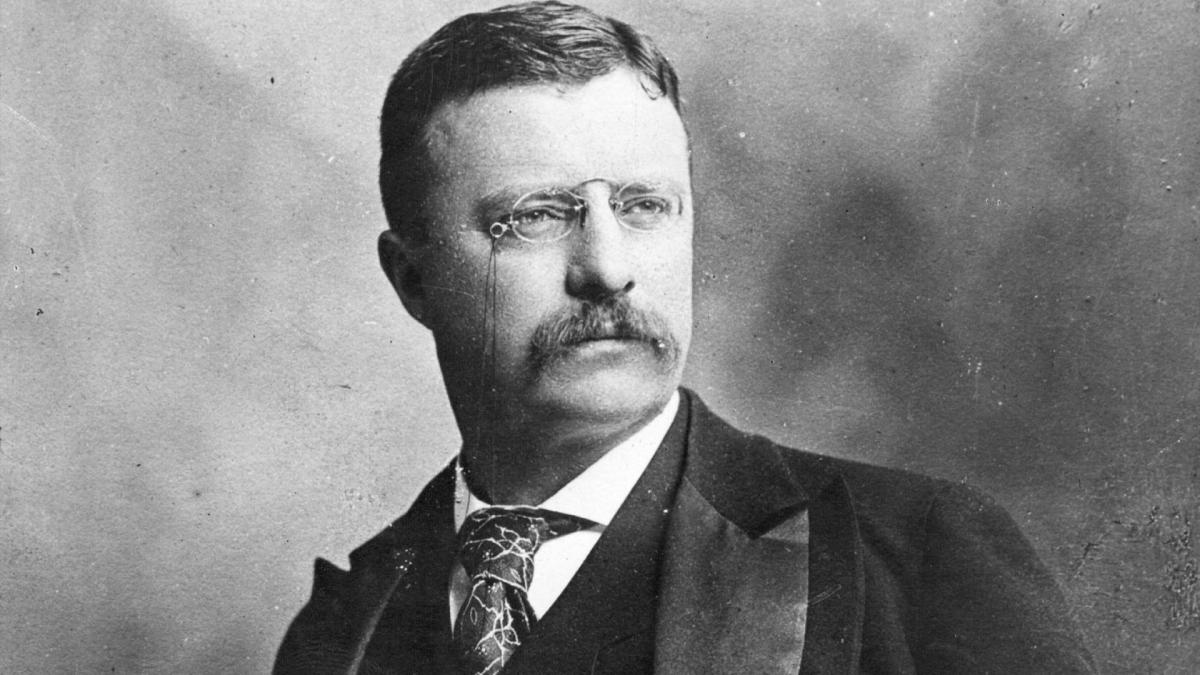
“It is not the critic who counts; not the man who points out how the strong man stumbles, or where the doer of deeds could have done them better. The credit belongs to the man who is actually in the arena, whose face is marred by dust and sweat and blood; who strives valiantly; who errs, who comes short again and again, because there is no effort without error and shortcoming; but who does actually strive to do the deeds; who knows great enthusiasms, the great devotions; who spends himself in a worthy cause; who at the best knows in the end the triumph of high achievement, and who at the worst, if he fails, at least fails while daring greatly, so that his place shall never be with those cold and timid souls who neither know victory nor defeat.” – Theodore Roosevelt
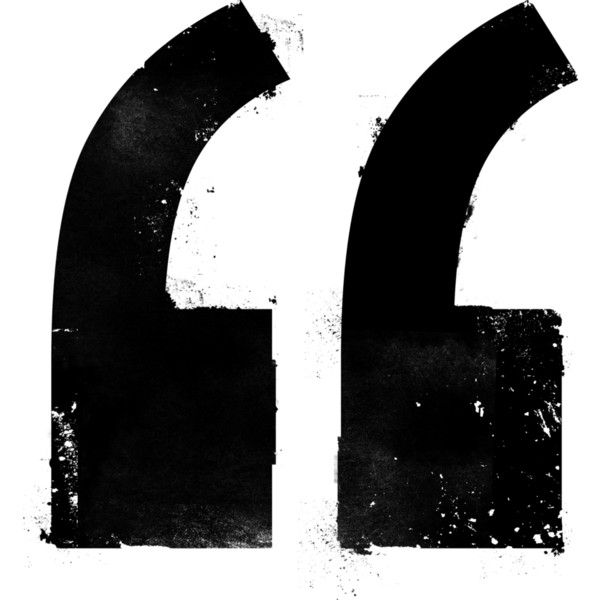
“Failure is not the opposite of success, it is a stepping stone to success.” – Arianna Huffington
“The correct lesson to learn from surprises is that the world is surprising.” – Daniel Kahneman
“Life’s tragedy is that we get old too soon and wise too late.” – Benjamin Franklin
“If you don’t know where you are going, any road will get you there.” – Lewis Carroll
“Genius is an infinite capacity for taking pains” – Thomas Carlyle
“The man who doesn’t read good books has no advantage over the man who can’t read them.” -Mark Twain
“Success is a lousy teacher. It seduces smart people into thinking they can’t lose.” – Bill Gates
Napoleon’s definition of a military genius is the person “who can do the average thing when everyone else around him is losing his mind.”
“The dead outnumber the living fourteen to one, and we ignore the accumulated experience of such a huge majority of mankind at our peril.” – Niall Ferguson on the lessons of history.
“History never repeats itself. Man always does.” – Voltaire
“Passion is the RESULT of action, not the CAUSE of it.” – Mark Manson
“When everything seems to be going against you, remember that the airplane takes off against the wind, not with it.” – Henry Ford
“Kids love athletes because they follow their dreams.” – Up in the Air
“To see is to experience the world as it is, to remember is to experience the world as it was, but to imagine-ah, to imagine is to experience the world as it isn’t and has never been, but as it might be.” – Daniel Gilbert, Stumbling on Happiness
“Comparison is the death of joy.” – Mark Twain
“If you’re going to try, go all the way. Otherwise, don’t even start. This could mean losing girlfriends, wives, relatives and maybe even your mind. It could mean not eating for three or four days. It could mean freezing on a park bench. It could mean jail. It could mean derision. It could mean mockery–isolation. Isolation is the gift. All the others are a test of your endurance, of how much you really want to do it. And, you’ll do it, despite rejection and the worst odds. And it will be better than anything else you can imagine. If you’re going to try, go all the way. There is no other feeling like that. You will be alone with the gods, and the nights will flame with fire. You will ride life straight to perfect laughter. It’s the only good fight there is.” – Charles Bukowski
“Almost everybody is born a genius and buried an idiot.” – Charles Bukowski
“What matters most is how well you walk through the fire.” – Charles Bukowski
“People are strange: they are constantly angered by trivial things, but on a major matter like totally wasting their lives, they hardly seem to notice.” – Charles Bukowski
“Some people never go crazy, What truly horrible lives they must live.” – Charles Bukowski
“Find what you love and let it kill you.” – Charles Bukowski
“Everyone should smile. Life really isn’t that serious. We make it hard. The sun rises. The sun sets. We just tend to complicate the process.” – Jake Herbert
“The greatest failure is the failure to try.” – William Arthur Ward
“The best time to plant a tree was 20 years ago. The second best time is now.” – Chinese Proverb
“Train people well enough so they can leave. Treat them well enough so they don’t want to.” – Sir Richard Branson
“Retirement is earning the privilege of being free to enjoy the balanced lifestyle of our dreams, without ‘working for a living’ getting in the way too much. You don’t have to quit working altogether, you just have to feel secure enough to be choosy about your work, and your schedule.” – Mr. Money Mustache
“Someone once told me the definition of Hell: The last day you have on earth, the person you became will meet the person you could have become.”
“No one is you and that is your power.” – Dave Grohl
“He who deliberates fully before taking a step will spend his entire life on one leg.”
“Whenever the time is right, it will be the right time.”
“Security is mostly a superstition. It does not exist in nature, nor do the children of men as a whole experience it. Avoiding danger is no safer in the long run than outright exposure. Life is either a daring adventure, or nothing.” – Helen Keller

Before the Law stands a doorkeeper on guard. To this doorkeeper there comes a man from the country who begs for admittance to the Law. But the doorkeeper says that he cannot admit the man at the moment. The man, on reflection, asks if he will be allowed, then, to enter later.
‘It is possible,’ answers the doorkeeper, ‘but not at this moment.’
Since the door leading into the Law stands open as usual and the doorkeeper steps to one side, the man bends down to peer through the entrance.
When the doorkeeper sees that, he laughs and says: ‘If you are so strongly tempted, try to get in without my permission. But note that I am powerful. And I am only the lowest doorkeeper. From hall to hall keepers stand at every door, one more powerful than the other. Even the third of these has an aspect that even I cannot bear to look at.’
These are difficulties which the man from the country has not expected to meet; the Law, he thinks, should be accessible to every man and at all times, but when he looks more closely at the doorkeeper in his furred robe, with his huge pointed nose and long, thin, Tartar beard, he decides that he had better wait until he gets permission to enter. The doorkeeper gives him a stool and lets him sit down at the side of the door. There he sits waiting for days and years. He makes many attempts to be allowed in and wearies the doorkeeper with his importunity.
The doorkeeper often engages him in brief conversation, asking him about his home and about other matters, but the questions are put quite impersonally, as great men put questions, and always conclude with the statement that the man cannot be allowed to enter yet. The man, who has equipped himself with many things for his journey, parts with all he has, however valuable, in the hope of bribing the doorkeeper.
The doorkeeper accepts it all, saying, however, as he takes each gift: ‘I take this only to keep you from feeling that you have left something undone.’
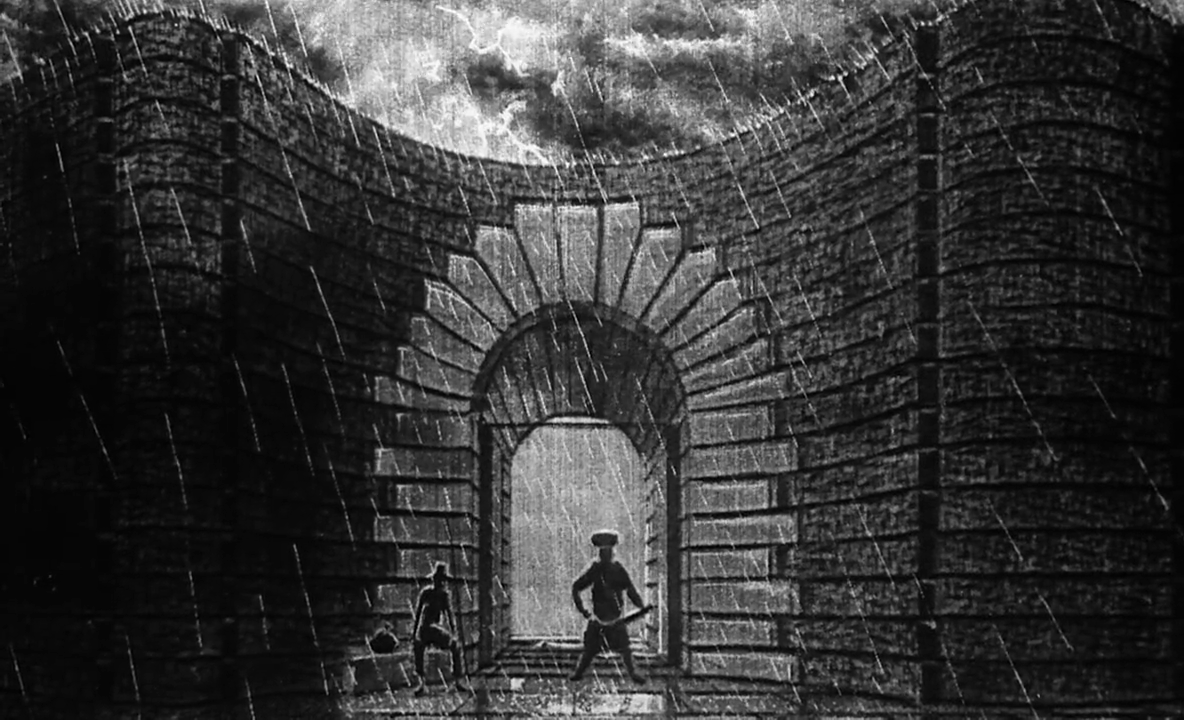
During all these long years the man watches the doorkeeper almost incessantly. He forgets about the other doorkeepers, and this one seems to him the only barrier between himself and the Law. In the first years he curses his evil fate aloud; later, as he grows old, he only mutters to himself. He grows childish, and since in his prolonged watch he has learned to know even the fleas in the doorkeeper’s fur collar, he begs the very fleas to help him and to persuade the doorkeeper to change his mind.
Finally his eyes grow dim and he does not know whether the world is really darkening around him or whether his eyes are only deceiving him. But in the darkness he can now perceive a radiance that streams immortally from the door of the Law. Now his life is drawing to a close. Before he dies, all that he has experienced during the whole time of his sojourn condenses in his mind into one question, which he has never yet put to the doorkeeper.
He beckons the doorkeeper, since he can no longer raise his stiffening body. The doorkeeper has to bend far down to hear him, for the difference in size between them has increased very much to the man’s disadvantage.
‘What do you want to know now?’ asks the doorkeeper, ‘you are insatiable.’
‘Everyone strives to attain the Law,’ answers the man, ‘how does it come about, then, that in all these years no one has come seeking admittance but me?’
The doorkeeper perceives that the man is at the end of his strength and that his hearing is failing, so he bellows in his ear: ‘No one but you could gain admittance through this door, since this door was intended only for you. I am now going to shut it.’
by Franz Kafka
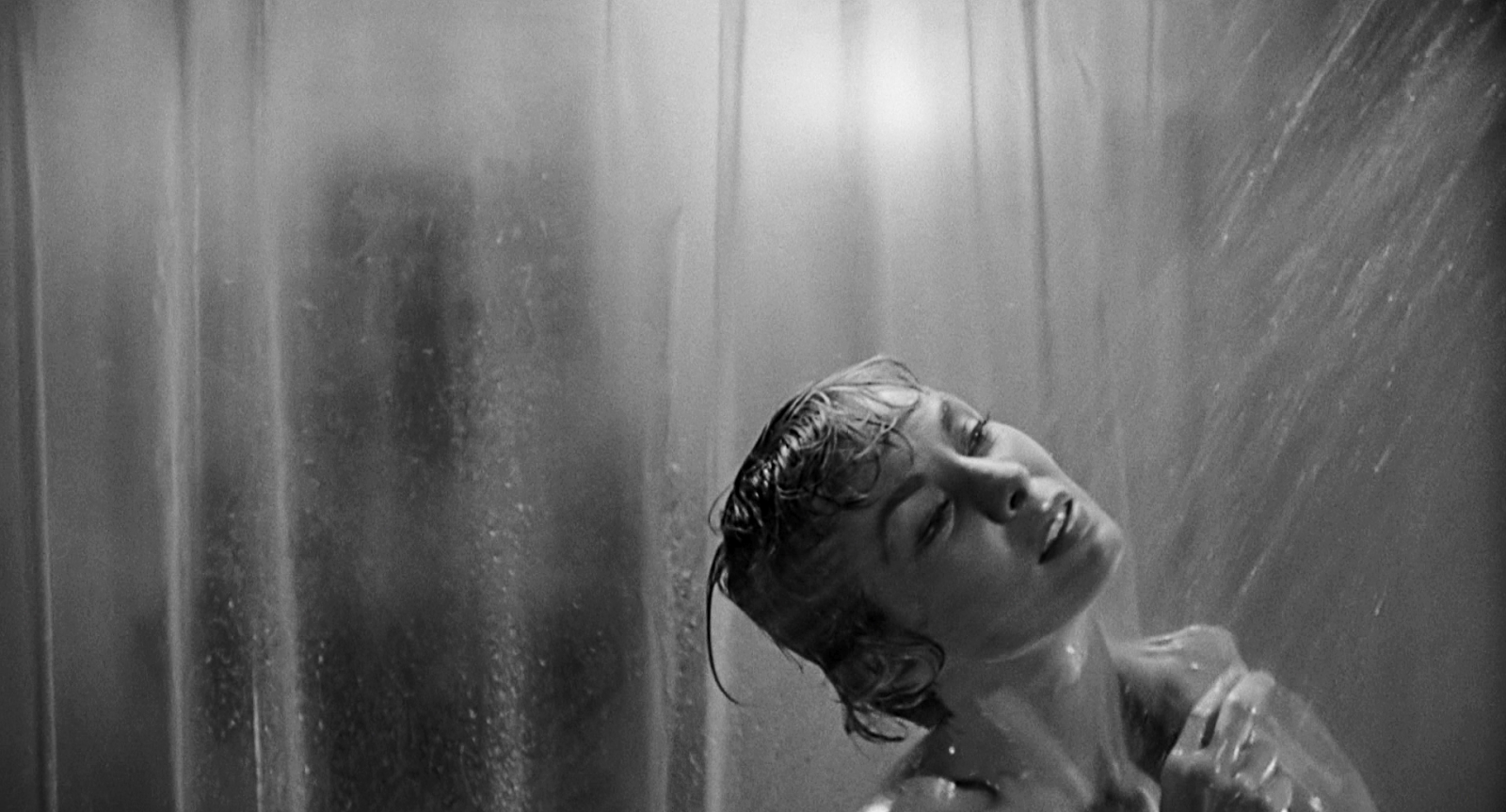
Every day, in showers across the world, people have thoughts. Some of them are better than others. This is a list of those thoughts.
We’ll continue to update this list weekly, as more thoughts are had.
When medication says “do not operate heavy machinery” they’re probably mainly referring to cars, but my mind always goes to forklift.A guy can decline an invitation by saying his girlfriend won’t let him go and everyone will likely understand. But if a girl declines an invitation by saying her boyfriend won’t let her go, people will likely get concerned.
My parents taught me to be kind and humble, honest and hardworking, and to save an unnecessary fuckton of plastic bags under the sink.
Waterboarding at Guantanamo Bay sounds super rad if you don’t know what either of those things are.
The Onion might go bankrupt because they can’t compete against the reality now.
There should be a millenial edition of Monopoly where you just walk round the board paying rent, never able to buy anything.
UPS will leave a $900 video card on my porch without even knocking but I have to sign for a $10 pizza.
Sleep should be rolled over. Like “Oh, you got 20 hours of sleep today? Cool man, you don’t need sleep for the next three days.”
Fitbits are just like Tamagotchis, except the stupid little creature you have to keep alive is yourself.
As a Dad, I wish developers would make a game where player two helps you just by mashing random buttons.
My way of flirting is looking at the person I’m attracted to and hoping they’re braver than I am.
I just realized that whenever I hear a “… walk into a bar” joke, Ive been picturing the same bar my whole life. I wonder if it exists somewhere or if its just a mesh of different bars I saw on tv as a kid.
It’s weird how “Fact-checking” and “News” are treated like two separate concepts nowadays.
Over the past year I’ve taken so many “before” pictures of my body while telling myself im going to start working out, I basically just have a slideshow of me getting fatter.
Humans are really bad at recharging, it takes about 8 hours charge for 16 hours of use.
Even if I agree with your bumper sticker 100%, I still think less of you for having a bumper sticker.
As a child, whenever I saw a limousine I always expected there was someone rich or famous inside. Now when I see a limousine, I expect it’s a bunch of trashy high school kids.

A boat docked in a tiny Mexican village. An American tourist complimented the Mexican fisherman on the quality of his fish and asked how long it took him to catch them. “Not very long,” answered the Mexican.
“But then, why didn’t you stay out longer and catch more?” asked the American. The Mexican explained that his small catch was sufficient to meet his needs and those of his family.
The American asked, “But what do you do with the rest of your time?”
“I sleep late, fish a little, play with my children, and take a siesta with my wife. In the evenings, I go into the village to see my friends, have a few drinks, play the guitar, and sing a few songs … I have a full life.”
The American interrupted, “I have an MBA from Harvard and I can help you! You should start by fishing longer every day. You can then sell the extra fish you catch. With the extra revenue, you can buy a bigger boat.
“And after that?” asked the Mexican.
With the extra money the larger boat will bring, you can buy a second one and a third one and so on until you have an entire fleet of trawlers. Instead of selling your fish to a middle man, you can then negotiate directly with the processing plants and maybe even open your own plant. You can then leave this little village and move to Mexico City, Los Angeles, or even New York City! From there you can direct your huge new enterprise.”
“How long would that take?” asked the Mexican.
“Twenty, perhaps 25 years,” replied the American.
“And after that?” the Mexican asked.
“Afterwards? That’s when it gets really interesting,” answered the American, laughing. “When your business gets really big, you can start selling stocks and make millions!”
“Millions? Really? And after that?”
“After that you’ll be able to retire, live in a tiny village near the coast, sleep late, play with your children, catch a few fish, take a siesta with your wife and spend your evenings drinking and enjoying your friends.”

I have always enjoyed watching/listening to commencement speeches on YouTube. Aside from being motivational and making me feel all warm and fuzzy inside, like tequila, they also help balance/cancel out the other crap I watch on YouTube like this video of a thrilling marble race. Let’s face it. You know it isn’t good to watch TV all the time, but if you’re watching the History channel, or some period drama like The Crown, you can at least convince yourself that you’re watching something educational. RIGHT?
For the last several years, my favorite commencement videos on YouTube, were these two speeches given by Denzel Washington and Charlie Day. However, I recently stumbled upon this speech, given by David Foster Wallace and it has taken the top spot. Unlike many commencement speeches, David doesn’t use his 20 minutes to discuss how members of this graduating class will go on to change the world. Instead, he focuses on the “large parts of adult American life that nobody talks about in commencement speeches,” what life is really like after college. The 9-5 grind. Sitting in traffic. Getting stuck at the grocery store. Going to bed early only to wake up and do it all again the next day.
This speech certainly would have resonated with “pre-daddy” Tom,however, the daily grind is now magnified, and David’s message and perspective is needed now more than ever.
Below I have included audio of the speech via YouTube, as well as the typed transcript, (if you want to be discreet with your time killing at work.) It’s a bit of a read, and about a 23 minute video, but I promise you it’s worth your time and attention.
Without further ado.
This Is Water
By: David Foster Wallace
Given to the 2005 Graduating Class of Kenyon College
“Greetings parents and congratulations to Kenyon’s graduating class of 2005. There are these two young fish swimming along and they happen to meet an older fish swimming the other way, who nods at them and says “Morning, boys. How’s the water?” And the two young fish swim on for a bit, and then eventually one of them looks over at the other and goes “What the hell is water?”
This is a standard requirement of US commencement speeches, the deployment of didactic little parable-ish stories. The story thing turns out to be one of the better, less bullshitty conventions of the genre, but if you’re worried that I plan to present myself here as the wise, older fish explaining what water is to you younger fish, please don’t be. I am not the wise old fish. The point of the fish story is merely that the most obvious, important realities are often the ones that are hardest to see and talk about. Stated as an English sentence, of course, this is just a banal platitude, but the fact is that in the day to day trenches of adult existence, banal platitudes can have a life or death importance, or so I wish to suggest to you on this dry and lovely morning.
Of course the main requirement of speeches like this is that I’m supposed to talk about your liberal arts education’s meaning, to try to explain why the degree you are about to receive has actual human value instead of just a material payoff. So let’s talk about the single most pervasive cliché in the commencement speech genre, which is that a liberal arts education is not so much about filling you up with knowledge as it is about “teaching you how to think.” If you’re like me as a student, you’ve never liked hearing this, and you tend to feel a bit insulted by the claim that you needed anybody to teach you how to think, since the fact that you even got admitted to a college this good seems like proof that you already know how to think. But I’m going to posit to you that the liberal arts cliché turns out not to be insulting at all, because the really significant education in thinking that we’re supposed to get in a place like this isn’t really about the capacity to think, but rather about the choice of what to think about. If your total freedom of choice regarding what to think about seems too obvious to waste time discussing, I’d ask you to think about fish and water, and to bracket for just a few minutes your scepticism about the value of the totally obvious.
Here’s another didactic little story. There are these two guys sitting together in a bar in the remote Alaskan wilderness. One of the guys is religious, the other is an atheist, and the two are arguing about the existence of God with that special intensity that comes after about the fourth beer. And the atheist says: “Look, it’s not like I don’t have actual reasons for not believing in God. It’s not like I haven’t ever experimented with the whole God and prayer thing. Just last month I got caught away from the camp in that terrible blizzard, and I was totally lost and I couldn’t see a thing, and it was 50 below, and so I tried it: I fell to my knees in the snow and cried out ‘Oh, God, if there is a God, I’m lost in this blizzard, and I’m gonna die if you don’t help me.’” And now, in the bar, the religious guy looks at the atheist all puzzled. “Well then you must believe now,” he says, “After all, here you are, alive.” The atheist just rolls his eyes. “No, man, all that was was a couple Eskimos happened to come wandering by and showed me the way back to camp.”
It’s easy to run this story through kind of a standard liberal arts analysis: the exact same experience can mean two totally different things to two different people, given those people’s two different belief templates and two different ways of constructing meaning from experience. Because we prize tolerance and diversity of belief, nowhere in our liberal arts analysis do we want to claim that one guy’s interpretation is true and the other guy’s is false or bad. Which is fine, except we also never end up talking about just where these individual templates and beliefs come from. Meaning, where they come from INSIDE the two guys. As if a person’s most basic orientation toward the world, and the meaning of his experience were somehow just hard-wired, like height or shoe-size; or automatically absorbed from the culture, like language. As if how we construct meaning were not actually a matter of personal, intentional choice. Plus, there’s the whole matter of arrogance. The nonreligious guy is so totally certain in his dismissal of the possibility that the passing Eskimos had anything to do with his prayer for help. True, there are plenty of religious people who seem arrogant and certain of their own interpretations, too. They’re probably even more repulsive than atheists, at least to most of us. But religious dogmatists’ problem is exactly the same as the story’s unbeliever: blind certainty, a close-mindedness that amounts to an imprisonment so total that the prisoner doesn’t even know he’s locked up.
The point here is that I think this is one part of what teaching me how to think is really supposed to mean. To be just a little less arrogant. To have just a little critical awareness about myself and my certainties. Because a huge percentage of the stuff that I tend to be automatically certain of is, it turns out, totally wrong and deluded. I have learned this the hard way, as I predict you graduates will, too.
Here is just one example of the total wrongness of something I tend to be automatically sure of: everything in my own immediate experience supports my deep belief that I am the absolute centre of the universe; the realest, most vivid and important person in existence. We rarely think about this sort of natural, basic self-centredness because it’s so socially repulsive. But it’s pretty much the same for all of us. It is our default setting, hard-wired into our boards at birth. Think about it: there is no experience you have had that you are not the absolute centre of. The world as you experience it is there in front of YOU or behind YOU, to the left or right of YOU, on YOUR TV or YOUR monitor. And so on. Other people’s thoughts and feelings have to be communicated to you somehow, but your own are so immediate, urgent, real.
Please don’t worry that I’m getting ready to lecture you about compassion or other-directedness or all the so-called virtues. This is not a matter of virtue. It’s a matter of my choosing to do the work of somehow altering or getting free of my natural, hard-wired default setting which is to be deeply and literally self-centered and to see and interpret everything through this lens of self. People who can adjust their natural default setting this way are often described as being “well-adjusted”, which I suggest to you is not an accidental term.
Given the triumphant academic setting here, an obvious question is how much of this work of adjusting our default setting involves actual knowledge or intellect. This question gets very tricky. Probably the most dangerous thing about an academic education–least in my own case–is that it enables my tendency to over-intellectualise stuff, to get lost in abstract argument inside my head, instead of simply paying attention to what is going on right in front of me, paying attention to what is going on inside me.
As I’m sure you guys know by now, it is extremely difficult to stay alert and attentive, instead of getting hypnotised by the constant monologue inside your own head (may be happening right now). Twenty years after my own graduation, I have come gradually to understand that the liberal arts cliché about teaching you how to think is actually shorthand for a much deeper, more serious idea: learning how to think really means learning how to exercise some control over how and what you think. It means being conscious and aware enough to choose what you pay attention to and to choose how you construct meaning from experience. Because if you cannot exercise this kind of choice in adult life, you will be totally hosed. Think of the old cliché about “the mind being an excellent servant but a terrible master.”
This, like many clichés, so lame and unexciting on the surface, actually expresses a great and terrible truth. It is not the least bit coincidental that adults who commit suicide with firearms almost always shoot themselves in: the head. They shoot the terrible master. And the truth is that most of these suicides are actually dead long before they pull the trigger.
And I submit that this is what the real, no bullshit value of your liberal arts education is supposed to be about: how to keep from going through your comfortable, prosperous, respectable adult life dead, unconscious, a slave to your head and to your natural default setting of being uniquely, completely, imperially alone day in and day out. That may sound like hyperbole, or abstract nonsense. Let’s get concrete. The plain fact is that you graduating seniors do not yet have any clue what “day in day out” really means. There happen to be whole, large parts of adult American life that nobody talks about in commencement speeches. One such part involves boredom, routine and petty frustration. The parents and older folks here will know all too well what I’m talking about.
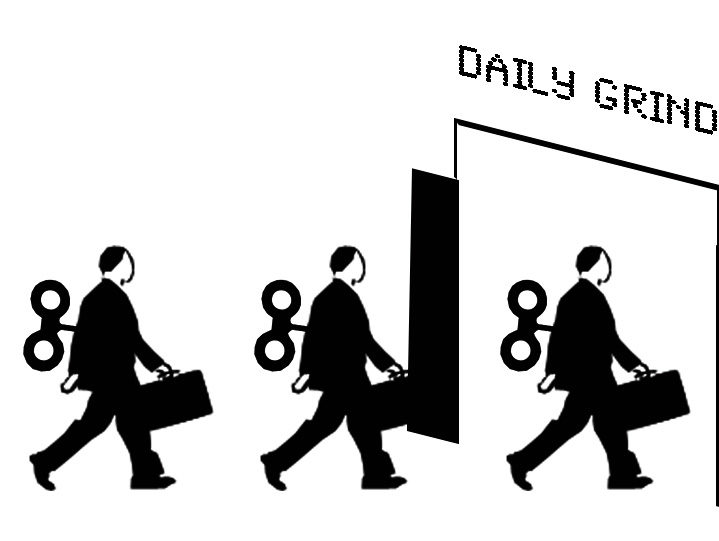
By way of example, let’s say it’s an average adult day, and you get up in the morning, go to your challenging, white-collar, college-graduate job, and you work hard for eight or ten hours, and at the end of the day you’re tired and somewhat stressed and all you want is to go home and have a good supper and maybe unwind for an hour, and then hit the sack early because, of course, you have to get up the next day and do it all again. But then you remember there’s no food at home. You haven’t had time to shop this week because of your challenging job, and so now after work you have to get in your car and drive to the supermarket. It’s the end of the work day and the traffic is apt to be: very bad. So getting to the store takes way longer than it should, and when you finally get there, the supermarket is very crowded, because of course it’s the time of day when all the other people with jobs also try to squeeze in some grocery shopping. And the store is hideously lit and infused with soul-killing muzak or corporate pop and it’s pretty much the last place you want to be but you can’t just get in and quickly out; you have to wander all over the huge, over-lit store’s confusing aisles to find the stuff you want and you have to manoeuvre your junky cart through all these other tired, hurried people with carts (et cetera, et cetera, cutting stuff out because this is a long ceremony) and eventually you get all your supper supplies, except now it turns out there aren’t enough check-out lanes open even though it’s the end-of-the-day rush. So the checkout line is incredibly long, which is stupid and infuriating. But you can’t take your frustration out on the frantic lady working the register, who is overworked at a job whose daily tedium and meaninglessness surpasses the imagination of any of us here at a prestigious college.
But anyway, you finally get to the checkout line’s front, and you pay for your food, and you get told to “Have a nice day” in a voice that is the absolute voice of death. Then you have to take your creepy, flimsy, plastic bags of groceries in your cart with the one crazy wheel that pulls maddeningly to the left, all the way out through the crowded, bumpy, littery parking lot, and then you have to drive all the way home through slow, heavy, SUV-intensive, rush-hour traffic, et cetera et cetera.
Everyone here has done this, of course. But it hasn’t yet been part of you graduates’ actual life routine, day after week after month after year.
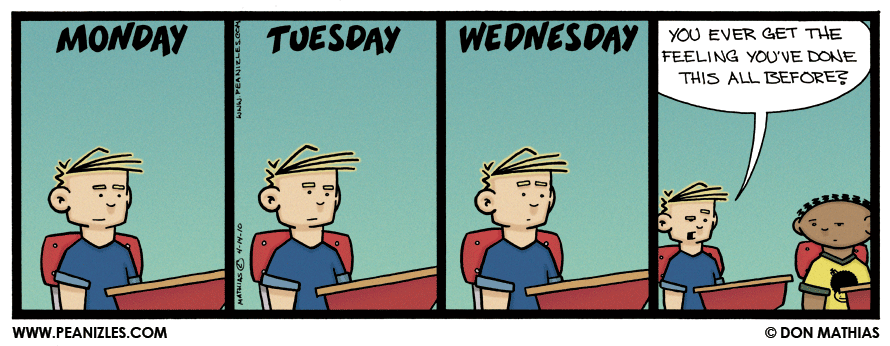
But it will be. And many more dreary, annoying, seemingly meaningless routines besides. But that is not the point. The point is that petty, frustrating crap like this is exactly where the work of choosing is gonna come in. Because the traffic jams and crowded aisles and long checkout lines give me time to think, and if I don’t make a conscious decision about how to think and what to pay attention to, I’m gonna be pissed and miserable every time I have to shop. Because my natural default setting is the certainty that situations like this are really all about me. About MY hungriness and MY fatigue and MY desire to just get home, and it’s going to seem for all the world like everybody else is just in my way. And who are all these people in my way? And look at how repulsive most of them are, and how stupid and cow-like and dead-eyed and nonhuman they seem in the checkout line, or at how annoying and rude it is that people are talking loudly on cell phones in the middle of the line. And look at how deeply and personally unfair this is.
Or, of course, if I’m in a more socially conscious liberal arts form of my default setting, I can spend time in the end-of-the-day traffic being disgusted about all the huge, stupid, lane-blocking SUV’s and Hummers and V-12 pickup trucks, burning their wasteful, selfish, 40-gallon tanks of gas, and I can dwell on the fact that the patriotic or religious bumper-stickers always seem to be on the biggest, most disgustingly selfish vehicles, driven by the ugliest [responding here to loud applause] — this is an example of how NOT to think, though — most disgustingly selfish vehicles, driven by the ugliest, most inconsiderate and aggressive drivers. And I can think about how our children’s children will despise us for wasting all the future’s fuel, and probably screwing up the climate, and how spoiled and stupid and selfish and disgusting we all are, and how modern consumer society just sucks, and so forth and so on.
You get the idea.
If I choose to think this way in a store and on the freeway, fine. Lots of us do. Except thinking this way tends to be so easy and automatic that it doesn’t have to be a choice. It is my natural default setting. It’s the automatic way that I experience the boring, frustrating, crowded parts of adult life when I’m operating on the automatic, unconscious belief that I am the centre of the world, and that my immediate needs and feelings are what should determine the world’s priorities.
The thing is that, of course, there are totally different ways to think about these kinds of situations. In this traffic, all these vehicles stopped and idling in my way, it’s not impossible that some of these people in SUV’s have been in horrible auto accidents in the past, and now find driving so terrifying that their therapist has all but ordered them to get a huge, heavy SUV so they can feel safe enough to drive. Or that the Hummer that just cut me off is maybe being driven by a father whose little child is hurt or sick in the seat next to him, and he’s trying to get this kid to the hospital, and he’s in a bigger, more legitimate hurry than I am: it is actually I who am in HIS way.
Or I can choose to force myself to consider the likelihood that everyone else in the supermarket’s checkout line is just as bored and frustrated as I am, and that some of these people probably have harder, more tedious and painful lives than I do.
Again, please don’t think that I’m giving you moral advice, or that I’m saying you are supposed to think this way, or that anyone expects you to just automatically do it. Because it’s hard. It takes will and effort, and if you are like me, some days you won’t be able to do it, or you just flat out won’t want to.
But most days, if you’re aware enough to give yourself a choice, you can choose to look differently at this fat, dead-eyed, over-made-up lady who just screamed at her kid in the checkout line. Maybe she’s not usually like this. Maybe she’s been up three straight nights holding the hand of a husband who is dying of bone cancer. Or maybe this very lady is the low-wage clerk at the motor vehicle department, who just yesterday helped your spouse resolve a horrific, infuriating, red-tape problem through some small act of bureaucratic kindness. Of course, none of this is likely, but it’s also not impossible. It just depends what you want to consider. If you’re automatically sure that you know what reality is, and you are operating on your default setting, then you, like me, probably won’t consider possibilities that aren’t annoying and miserable. But if you really learn how to pay attention, then you will know there are other options. It will actually be within your power to experience a crowded, hot, slow, consumer-hell type situation as not only meaningful, but sacred, on fire with the same force that made the stars: love, fellowship, the mystical oneness of all things deep down.
Not that that mystical stuff is necessarily true. The only thing that’s capital-T True is that you get to decide how you’re gonna try to see it.
This, I submit, is the freedom of a real education, of learning how to be well-adjusted. You get to consciously decide what has meaning and what doesn’t. You get to decide what to worship.
Because here’s something else that’s weird but true: in the day-to-day trenches of adult life, there is actually no such thing as atheism. There is no such thing as not worshipping. Everybody worships. The only choice we get is what to worship. And the compelling reason for maybe choosing some sort of god or spiritual-type thing to worship–be it JC or Allah, be it YHWH or the Wiccan Mother Goddess, or the Four Noble Truths, or some inviolable set of ethical principles–is that pretty much anything else you worship will eat you alive. If you worship money and things, if they are where you tap real meaning in life, then you will never have enough, never feel you have enough. It’s the truth. Worship your body and beauty and sexual allure and you will always feel ugly. And when time and age start showing, you will die a million deaths before they finally grieve you. On one level, we all know this stuff already. It’s been codified as myths, proverbs, clichés, epigrams, parables; the skeleton of every great story. The whole trick is keeping the truth up front in daily consciousness.
Worship power, you will end up feeling weak and afraid, and you will need ever more power over others to numb you to your own fear. Worship your intellect, being seen as smart, you will end up feeling stupid, a fraud, always on the verge of being found out. But the insidious thing about these forms of worship is not that they’re evil or sinful, it’s that they’re unconscious. They are default settings.
They’re the kind of worship you just gradually slip into, day after day, getting more and more selective about what you see and how you measure value without ever being fully aware that that’s what you’re doing.
And the so-called real world will not discourage you from operating on your default settings, because the so-called real world of men and money and power hums merrily along in a pool of fear and anger and frustration and craving and worship of self. Our own present culture has harnessed these forces in ways that have yielded extraordinary wealth and comfort and personal freedom. The freedom all to be lords of our tiny skull-sized kingdoms, alone at the centre of all creation. This kind of freedom has much to recommend it. But of course there are all different kinds of freedom, and the kind that is most precious you will not hear much talk about much in the great outside world of wanting and achieving…. The really important kind of freedom involves attention and awareness and discipline, and being able truly to care about other people and to sacrifice for them over and over in myriad petty, unsexy ways every day.
That is real freedom. That is being educated, and understanding how to think. The alternative is unconsciousness, the default setting, the rat race, the constant gnawing sense of having had, and lost, some infinite thing.
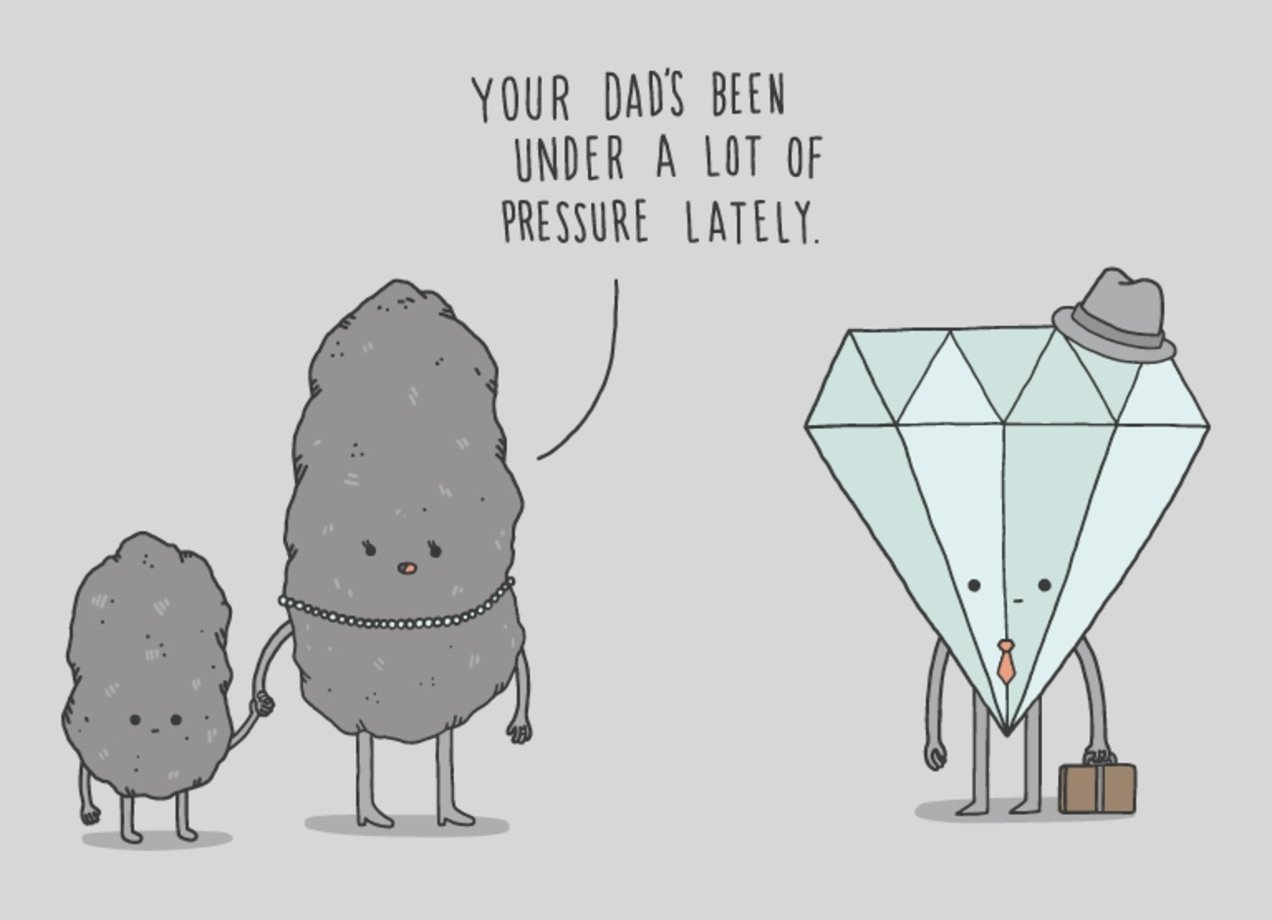
I know that this stuff probably doesn’t sound fun and breezy or grandly inspirational the way a commencement speech is supposed to sound. What it is, as far as I can see, is the capital-T Truth, with a whole lot of rhetorical niceties stripped away. You are, of course, free to think of it whatever you wish. But please don’t just dismiss it as just some finger-wagging Dr Laura sermon. None of this stuff is really about morality or religion or dogma or big fancy questions of life after death.
The capital-T Truth is about life BEFORE death.
It is about the real value of a real education, which has almost nothing to do with knowledge, and everything to do with simple awareness; awareness of what is so real and essential, so hidden in plain sight all around us, all the time, that we have to keep reminding ourselves over and over:
“This is water.”
“This is water.”
It is unimaginably hard to do this, to stay conscious and alive in the adult world day in and day out. Which means yet another grand cliché turns out to be true: your education really IS the job of a lifetime. And it commences: now.
I wish you way more than luck.

